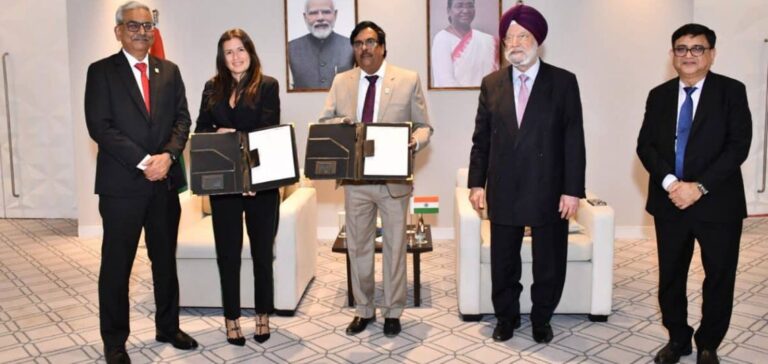India is exploring new energy solutions with the launch of a pilot wave energy project led by Bharat Petroleum Corporation Limited (BPCL) in partnership with Eco Wave Power Global AB. This initiative aims to assess the feasibility of this technology and pave the way for larger-scale installations.
A strategic partnership for wave energy
The agreement between BPCL and Eco Wave Power Global AB outlines a multi-phase approach. Initially, a feasibility study will be conducted to determine the optimal conditions for implementation. Subsequently, a 100-kW pilot project will be deployed at BPCL’s oil terminals in Mumbai. This initial phase will help evaluate the technology’s performance and optimize energy production efficiency from ocean waves.
A regulatory framework under adaptation
BPCL will handle administrative procedures, including regulatory approvals and land use permits. Meanwhile, Eco Wave Power will provide its patented wave energy conversion technology, conduct research, and adjust production parameters to maximize system efficiency.
A high-potential market
This collaboration aligns with India’s energy strategy, where the Ministry of New and Renewable Energy (MNRE) recognizes ocean energy as a promising renewable source. With an estimated potential of 40,000 megawatts along India’s coastline, the country could become a key player in the sector. This project could pave the way for larger-scale commercial deployments.






















